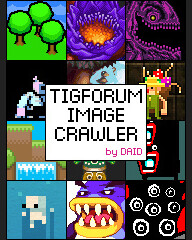Indie Fund
By: Derek Yu
On: March 3rd, 2010

A group of successful indie developers have started Indie Fund, a funding source for independent developers. The 7 backers of the fund (Ron Carmel, Kyle Gabler, Jonathan Blow, Kellee Santiago, Nathan Vella, Matthew Wegner, and Aaron Isaksen) are investing in indie games and supporting their development. The primary goal is to provide a way for indies to create and sell games without having to compromise their vision or legal rights to publishers. Of course, you’d also be getting the advice of some of the community’s most experienced and successful creators.
Currently, the Fund is investing in a few undisclosed indie titles, which happened “through word of mouth within the indie community”. Eventually, though, there will be a way for developers to submit their games. You can find out more about Indie Fund in this Gamasutra Q&A with Ron Carmel of 2D Boy.
-
Ivan
-
Stephen
-
Stephen
-
paul eres
-
http://adamatomic.com Adam Atomic
-
paul eres
-
http://adamatomic.com Adam Atomic
-
paul eres
-
http://adamatomic.com Adam Atomic
-
This guy
-
paul eres
-
http://www.tinycolossus.com Ciro Continisio
-
http://www.tinycolossus.com Ciro Continisio
-
Crimsontide
-
jon schubbe
-
do0d
-
Jonathan Blow
-
Jonathan Blow
-
Derek
-
Ron Carmel
-
http://oneeyedmonsters.wordpress.com Peevish
-
Bob
-
Anonymous
-
http://failrate.com failrate
-
Dodger
-
a certified moron
-
Bob
-
Dan MacDonald
-
Splinter of Chaos
-
Dodger
-
Dinsdale
-
my-o-why
-
Dan MacDonald
-
Dodger
-
Dodger
-
Splinter of Chaos
-
paul eres
-
Dodger
-
paul eres
-
Anthony Flack
-
Dodger
-
paul eres
-
Anthony Flack
-
Anthony Flack
-
Dodger
-
paul eres
-
Ninomojo
-
Dodger
-
paul eres
-
Anthony Flack

